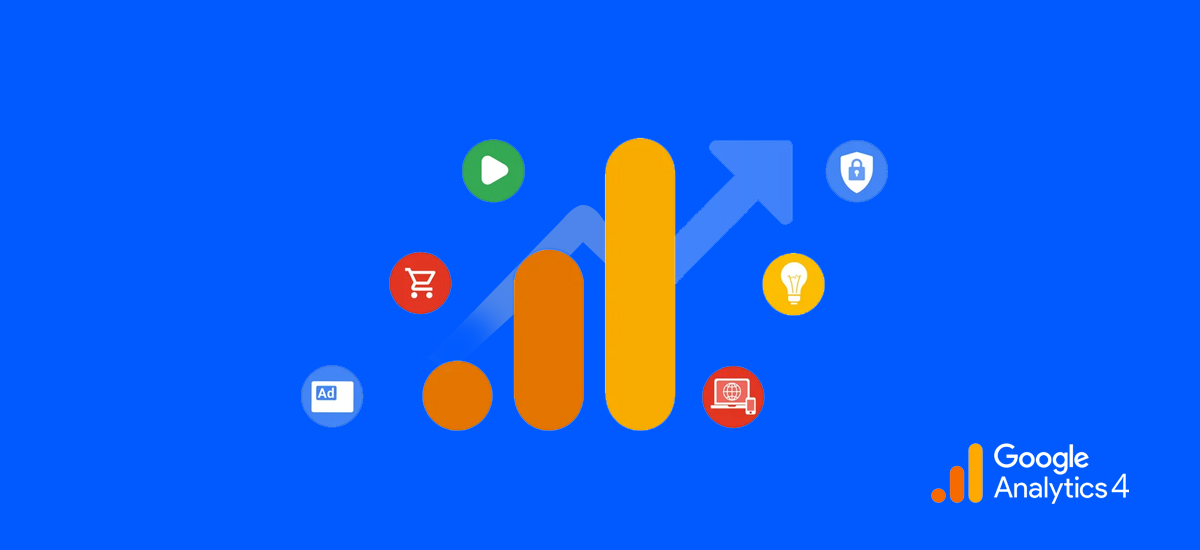
The ability to accurately measure and analyze online traffic is not just an advantage; it's a necessity. A consistent frontrunner in this field is Google Analytics, a tool that has consistently adapted and grown with the digital landscape. Our exploration today focuses on Google Analytics 4 (GA4), the latest iteration of this tool, equipped with a suite of features set to redefine data analytics.
The Current Landscape and Challenges
In today's digital-first world, businesses across sectors grapple with a multi-faceted online landscape. Multiple customer touchpoints, ranging from websites, and mobile apps, to social media channels, have added complexity to data collection and analysis. Consequently, understanding the complete customer journey and effectively tailoring marketing strategies have become challenging.
One prominent issue is the siloed data collected from different platforms, making it difficult to construct a cohesive and comprehensive understanding of user behavior. Additionally, with the impending elimination of third-party cookies and increased privacy regulations, marketers are compelled to reevaluate their approach to data tracking and user privacy.
Google Analytics, in its previous forms, has been an invaluable tool in navigating these challenges. However, as the digital landscape evolves, so must our tools. This is where Google Analytics 4 comes into play. It is designed to address these modern challenges, offering advanced features that allow businesses to thrive in an increasingly complex and privacy-focused online environment.
Transitioning to the Future: Unlocking the Benefits of Google Analytics 4
The transition from Universal Analytics to Google Analytics 4 (GA4) indeed signifies a paradigm shift in the world of analytics. GA4 is not merely a simple upgrade but a complete redesign that introduces a customer-centric approach and offers a wide array of advanced features and capabilities. These enhancements enable businesses to gain more comprehensive and meaningful insights, catering to the evolving needs of a multi-platform and multi-device landscape.
Enhanced Cross-Platform Tracking: GA4 excels in tracking user interactions across various platforms, including websites, mobile apps, and even offline interactions. It leverages advanced techniques, such as enhanced measurement and event-driven data collection, to capture user behavior across the entire customer journey, regardless of the platform or device used. This holistic view of user interactions provides businesses with a deeper understanding of customer engagement and allows them to optimize their marketing strategies accordingly.
Expanded Data Collection and Measurement: GA4 expands the scope of data collection and measurement capabilities. It offers more flexibility in tracking events, allowing businesses to define custom events and parameters that align with their specific goals and objectives. This customization empowers businesses to track and analyze granular user interactions, enabling deeper insights into user behavior, engagement, and conversions.
AI-Driven Insights: GA4 incorporates machine learning and artificial intelligence (AI) capabilities to provide automated insights and predictions. It utilizes advanced modelingtechniques to generate valuable insights, such as predicting user churn, lifetime value, and propensity to convert. These AI-driven insights help businesses identify trends, optimize marketing campaigns, and make data-informed decisions with greater confidence.
Advanced Analysis and Reporting: GA4 offers a more intuitive and user-friendly interface for analysis and reporting. It introduces a new Analysis Hub that provides access to pre-built reports, exploration tools, and data visualization options. This allows businesses to delve deeper into their data, uncover hidden patterns, and gain actionable insights. The advanced reporting capabilities also facilitate easier collaboration and sharing of insights across teams and stakeholders.
Privacy-Centric Approach: GA4 aligns with evolving privacy regulations and trends. It addresses the increasing focus on user privacy by providing options for consent management, data deletion, and customizable data retention periods. GA4's privacy-centric approach ensures businesses can comply with regulations while still gaining valuable insights from their analytics data.
Customer Lifecycle Analysis: GA4 introduces the concept of a customer lifecycle as a core element of analysis. It enables businesses to track and understand user interactions and behaviors at each stage of the customer journey. This customer-centric approach facilitates the identification of key touchpoints, pain points, and opportunities for engagement and conversion. By analyzing the customer lifecycle, businesses can optimize their marketing strategies and enhance the overall customer experience.
Integration with Google Marketing Platform: GA4 seamlessly integrates with other tools and platforms within the Google Marketing Platform ecosystem. This integration enables businesses to combine GA4 data with data from Google Ads, Google Tag Manager, and other marketing tools, providing a unified view of their marketing performance. The integration enhances the ability to measure and optimize marketing campaigns across multiple channels, leading to more effective targeting and improved return on investment.
In summary, the advanced features and capabilities of GA4 go beyond traditional analytics, enabling businesses to gain a more comprehensive understanding of their customers' behaviors and preferences. With enhanced cross-platform tracking, expanded data collection and measurement options, AI-driven insights, advanced analysis and reporting, a privacy-centric approach, customer lifecycle analysis, and integration with the Google Marketing Platform, GA4 empowers businesses to make data-informed decisions and optimize their marketing strategies for success in today's dynamic digital landscape.
Navigating Migration: Google Analytics 4 Migration Services
Migrating from Universal Analytics to Google Analytics 4 (GA4) can be a complex process, requiring businesses to navigate various technical aspects and ensure a seamless transition. To assist businesses in this transition, Google provides specialized services known as Google Analytics 4 Migration Services. These services are designed to guide businesses through the migration process, ensuring accurate setup, tracking, and interpretation of data in the new GA4 platform.
Expert Guidance and Consultation: Google Analytics 4 Migration Services offer businesses access to expert guidance and consultation throughout the migration journey. Google's team of specialists can provide valuable insights, best practices, and recommendations tailored to the specific needs and goals of each business. These experts are well-versed in the intricacies of the migration process and can assist in overcoming challenges, answering questions, and providing guidance to ensure a smooth transition.
Customized Migration Plan: Every business has unique requirements and objectives when it comes to analytics. Google Analytics 4 Migration Services work closely with businesses to develop a customized migration plan that aligns with their specific needs. This plan takes into account factors such as the complexity of existing analytics setups, data architecture, tracking requirements, and the desired outcome of the migration. A well-crafted migration plan ensures that the transition is efficient, minimizes disruptions, and maximizes the benefits of GA4.
Data Audit and Mapping: During the migration process, it is crucial to ensure the accurate transfer of data from Universal Analytics to GA4. Google Analytics 4 Migration Services assist businesses in conducting a thorough data audit, analyzing the existing data structure, and mapping it to the appropriate data model in GA4. This process ensures that the data collected in GA4 is aligned with the business objectives and can provide the desired insights. The experts can help identify any discrepancies or gaps in the data and provide guidance on resolving them effectively.
Tracking Code Implementation: Implementing the GA4 tracking code correctly is essential for accurate data collection and analysis. Google Analytics 4 Migration Services can guide businesses through the process of implementing the GA4 tracking code across their digital properties, including websites and mobile apps. They can provide step-by-step instructions, best practices, and troubleshooting support to ensure that the tracking code is correctly integrated and capturing the desired data. This ensures that businesses can continue to track user interactions seamlessly during and after the migration.
Custom Event and Parameter Setup: One of the strengths of GA4 lies in its flexibility in tracking custom events and parameters. Google Analytics 4 Migration Services can assist businesses in setting up custom events and parameters based on their specific tracking requirements. This customization allows businesses to track and analyze granular user interactions and behaviors that are relevant to their unique business goals. The experts can guide the best practices for setting up custom events and parameters, ensuring accurate data collection and comprehensive insights.
Data Validation and Quality Assurance: Before fully transitioning to GA4, it is essential to validate the data and ensure its accuracy and quality. Google Analytics 4 Migration Services can assist businesses in conducting data validation and quality assurance processes. This involves comparing data collected in both Universal Analytics and GA4 properties, identifying any discrepancies, and verifying that the data is correctly collected and interpreted in GA4. This step provides businesses with confidence in the accuracy of their data and ensures reliable insights for decision-making.
Training and Support: To empower businesses in utilizing GA4 to its fullest potential, Google Analytics 4 Migration Services offer training and ongoing support. This includes providing educational resources, documentation, and training sessions tailored to business-specific needs. These resources help businesses understand the new features and capabilities of GA4, navigate the platform effectively, and make the most of the advanced analytics tools.
The Power Duo: Managed SEO Services and Google Analytics 4
Managed SEO Services and Google Analytics 4 form a powerful duo for digital marketing. SEO Services optimize websites for search engines, increasing visibility and organic traffic. Google Analytics 4 provides comprehensive data on website performance and user behavior. Together, they revolutionize digital marketing strategies. SEO Services focus on optimization, improving rankings, and attracting organic traffic. GA4 tracks user behavior, offering insights into engagement, conversions, demographics, and more. Businesses can make data-driven decisions, refine SEO strategies, and enhance user experience. Integrating these services allows businesses to optimize and analyze traffic, make informed decisions, and improve their online presence.
Navigate the Future with Our Professional Services
At Visionet, we understand the importance of staying ahead in the digital landscape. We understand that maximizing your online presence requires a tailored and data-driven approach. Our Managed SEO Services provide precisely that. Using insights derived from Google Analytics 4, we can help optimize your website, attract more traffic, and convert visitors into loyal customers.
With Visionet as your partner, you will have the expertise and support you need to leverage Google Analytics 4 fully, future-proofing your business and equipping it with the tools necessary to thrive in the digital landscape.
Embrace the power of data-driven decision-making and elevate your business strategy. Contact us today, and together, let's harness the power of Google Analytics 4 to drive your business forward.









